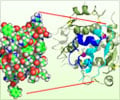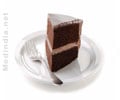- Sugar-Sweetened Beverages and Risk of Metabolic Syndrome and Type 2 Diabetes - (http://care.diabetesjournals.org/content/33/11/2477.full)
About
Increase in the consumption of sugar-sweetened beverages such as sweetened sodas, sports drinks and sugar added fruit drinks has led to an increased risk for diabetes and heart disease, according to a report presented at the 50th Annual Conference on Cardiovascular Disease Epidemiology and Prevention of the American Heart Association.
Type-2 diabetes is defined as ‘a metabolic disorder that is characterized by high blood glucose in the context of insulin resistance and relative insulin deficiency’.
It is a condition in which the pancreas produces insulin but the body cannot use it because it becomes resistant to the action of insulin. However, Dr. Barry Groves, the British nutritionist and an international author, defines type-2 diabetes as ‘a clinical syndrome characterized by chronic hyperglycemia due to an excessive intake of carbohydrate’ because ‘carbohydrate is the only dietary component that puts glucose into the blood’.

So, what exactly is the link between carbohydrates and type-2 diabetes? Simply put, eating carbohydrates triggers insulin, and too much of carbohydrates cause insulin resistance. However, all types of carbohydrates are not responsible for insulin resistance and type-2 diabetes. It is the monosaccharide or the sugary carbs that are the main culprits.
Sugary carbs, including sugar-sweetened beverages, have high glycemic index (GI) that raise blood glucose levels in the body very quickly causing a ‘spike’. In response, the pancreas tries to keep up with insulin requirement and releases more insulin very rapidly to help cells absorb the ‘extra’ glucose. A time comes when the pancreas cannot keep up with the demand for insulin.
Result – excess glucose in the blood stream. This combined with excess weight and lack of physical activity sets the stage for insulin resistance and type-2 diabetes.
The National Institutes of Health suggests that we should get 40 -60 percent of total calories from carbohydrates, and that too, from complex carbohydrates like starchy vegetables, whole grains and legumes, and natural sugars that are found in milk, fruits and vegetables. This is because these natural sugars are simple carbohydrates that contain naturally occurring vitamins and minerals.
Refined sugars such as table sugar, sweetened beverages, syrups (including high fructose corn syrup or HFCS) and candy do provide calories but these are ‘empty’ calories since they do not contain fiber, vitamins and minerals. Empty calories lead to weight gain, which finally leads to a cluster of conditions called metabolic syndrome causing obesity, high blood pressure and type-2 diabetes.
Unfortunately, most soft drink and fruit drink companies use HFCS instead of sugar in their beverages because HFCS is inexpensive and more cost effective and is required in smaller quantities as compared with natural sugars.








